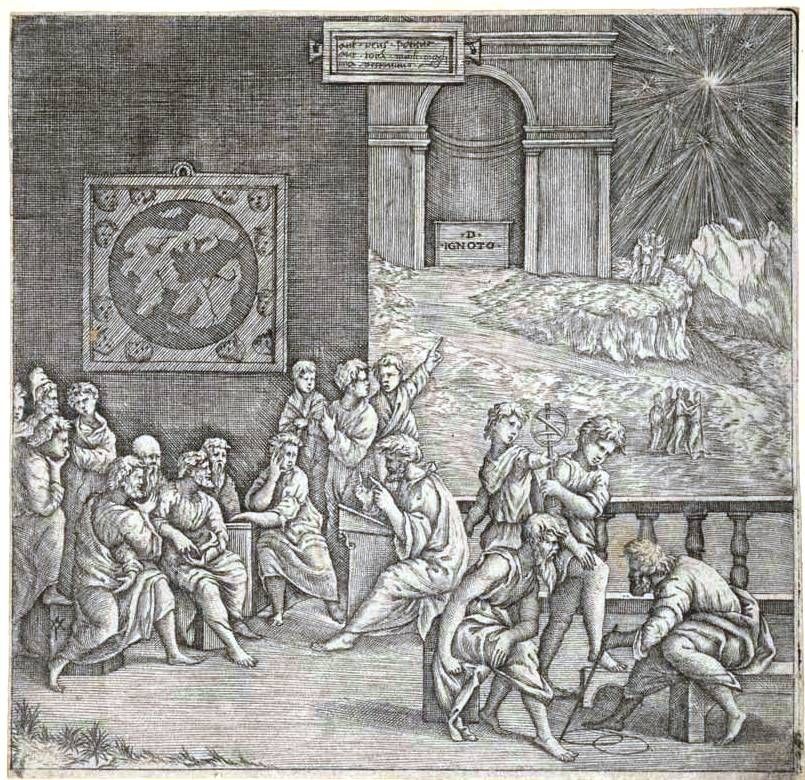Jacopo Caraglio was a printmaker, goldsmith, architect and medallist who was born in either Verona or Parma in 1505. The featured print is based on an unknown image; however, Caraglio’s choice of subject matter as well as the animated gestures and triangular grouping of figures recalls Raphael’s fresco School of Athens which is in the Stanza della Segnatura, inside the pope’s official residence at the Vatican.

In the image here, a philosopher who may be St. Paul sits underneath a map as he lectures a group of students. To the right, there is a Roman style altar devoted to d. ignoto; an unknown philosopher. In the group of figures closest to the viewer, a man draws overlapping circles while two boys hold an armillary sphere.
During the late fifteenth century Claudius Ptolemy’s Geographybecame widely available in Italy alongside the production of printed maps. Humanist philosophers were interested in the relationship between divine and earthly reality and believed that an understanding of mathematics and natural sciences would give them a deeper knowledge of God. The armillary sphere and map are rational models of the world, as they enable scholars to fathom the universe from an intellectual standpoint and train their minds to think beyond earthly, sensorial experience in order to contemplate abstract and divine concepts which were considered to be good for the soul.
Despite Caraglio’s significant skill as a print maker, according to Giorgio Vasari he renounced the craft later in his career because he viewed it as cosa bassa, meaning a ‘lowly thing’.